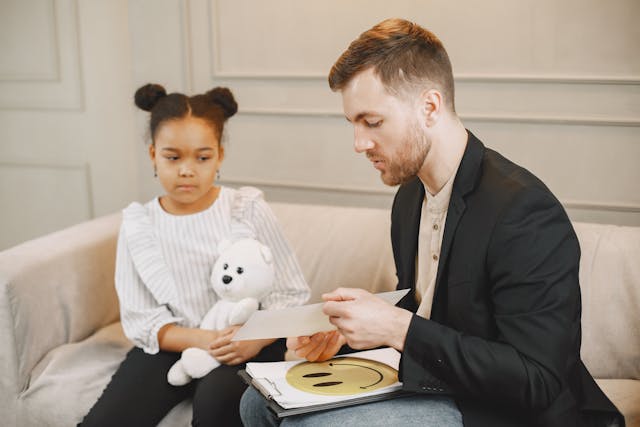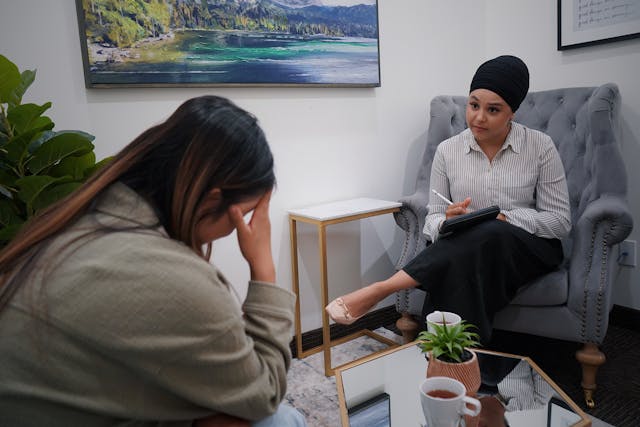Introduction
Helplessness is more than just a fleeting feeling of powerlessness — it’s a state of mind that can have a profound impact on mental health. When someone feels that they have no control over their situation, they may stop trying to change it, leading to a cycle of defeat and despair. This sense of helplessness can extend to every aspect of life, making it difficult to see a way out.
For mental health professionals, understanding and addressing helplessness is crucial, especially when it evolves into learned helplessness. This condition not only affects a person’s ability to cope with challenges but can also lead to serious mental health issues like depression and anxiety. Here, we’ll explore how learned helplessness is, how it develops, and, most importantly, how you can help your patients overcome it.
What is learned helplessness?
Learned helplessness occurs as a psychological state where individuals repeatedly face uncontrollable stressors, leading them to believe they lack the ability to effect change in their circumstances (Leonard, 2019). This feeling of powerlessness stems from repeated exposure to stressful or uncontrollable events, leading individuals to believe that their actions have no impact. Repeated exposure to negative events can cause individuals to develop learned helplessness, making it difficult for them to take action, even when they have control.
The signs and symptoms of learned helplessness can vary but often include feelings of apathy, low self-esteem, lack of motivation, and a pervasive sense of defeat. Patients may express beliefs that nothing they do matters, or they may avoid challenges altogether out of fear of failure. The causes of learned helplessness are typically linked to past experiences, such as ongoing stress, trauma, or environments where autonomy is consistently undermined. Moreover, risk factors for developing learned helplessness include a history of abuse, chronic illness, or living in environments with little to no personal control.
The impact of learned helplessness on mental health can then be significant. It is closely associated with conditions like depression, anxiety, and even post-traumatic stress disorder (PTSD). When patients feel trapped in their circumstances, they are less likely to engage in behaviors that promote well-being, which can create a vicious cycle of deteriorating mental health. Additionally, a pessimistic explanatory style leads individuals to view negative events as inescapable and often attribute personal responsibility for such events (Houston, 2019).
Understanding the roots and manifestations of learned helplessness in any mental health condition is essential for healthcare professionals seeking to help their patients break free from this debilitating mindset.
Teaching patients How to Overcome Learned Helplessness
As mental health professionals, one of the most powerful tools you can provide your patients is the ability to reclaim their sense of agency. Overcoming learned helplessness involves helping patients recognize their potential to effect change in their lives, even in the face of adversity. Here are some effective methods to guide your patients through this process:
Cognitive restructuring
Cognitive restructuring involves challenging and changing the negative thought patterns that contribute to feelings of helplessness (Institute for Quality and Efficiency in Health Care, 2022). By helping patients identify these negative thoughts and replace them with more positive, realistic ones, you can shift their mindset from powerlessness to empowerment. Encourage patients to practice self-reflection, identify cognitive distortions, and develop new, healthier ways of thinking.
Building self-efficacy
Self-efficacy, or the belief in one’s ability to succeed, is crucial in overcoming learned helplessness. Start by setting small, achievable goals with your patients to help them experience success and build confidence. As they accomplish these tasks, their sense of self-efficacy will grow, gradually shifting how learned helplessness affects them. Reinforce these successes by acknowledging their efforts and progress, which helps reinforce the belief that they can make a difference in their lives (Miles, 2022).
Encouraging problem-solving skills
Teaching problem-solving skills is another effective way to make mental health conditions combat learned helplessness (Wurm, 2021). Work with your patients to identify their problems and brainstorm potential solutions. Break down larger issues into smaller, manageable steps, and encourage them to tackle these challenges one by one. This approach not only empowers patients to take control of their situations but also fosters resilience and adaptability, which are essential for maintaining mental health in the long term.
Key takeaways
Overcoming learned helplessness is a journey that requires patience, persistence, and the right strategies. As healthcare professionals, you play a pivotal role in helping your patients regain control over their lives. You can guide them toward a more empowered mindset by teaching cognitive restructuring, building self-efficacy and personal responsibility, and encouraging problem-solving skills.
Remember, small victories can lead to significant changes. Celebrate each step forward with your patients, reinforcing their ability to make positive life changes. With your support and the right tools, patients can break free from the cycle of negative thinking and learned helplessness and move toward a healthier, more resilient state of mind.
References
Houston, E. (2019, March 11). What are attributional and explanatory styles in psychology? Positive Psychology. https://positivepsychology.com/explanatory-styles-optimism/
Institute for Quality and Efficiency in Health Care. (2022). In brief: Cognitive behavioral therapy. National Library of Medicine; Institute for Quality and Efficiency in Health Care (IQWiG). https://www.ncbi.nlm.nih.gov/books/NBK279297/
Leonard, J. (2019, May 31). What is learned helplessness?. Medical News Today. https://www.medicalnewstoday.com/articles/325355
Miles, M. (2022, August 17). How self-efficacy can boost your personal success. BetterUp. https://www.betterup.com/blog/self-efficacy
Wurm, L. (2021). Effective teaching approaches to combat learned helplessness for students in high school special education. https://repository.stcloudstate.edu/cgi/viewcontent.cgi?article=1127&context=sped_etds




.jpg)

.jpg)
.jpg)




.jpg)


.jpg)




.jpg)

.jpg)
.jpg)
.jpg)
.jpg)
.jpg)